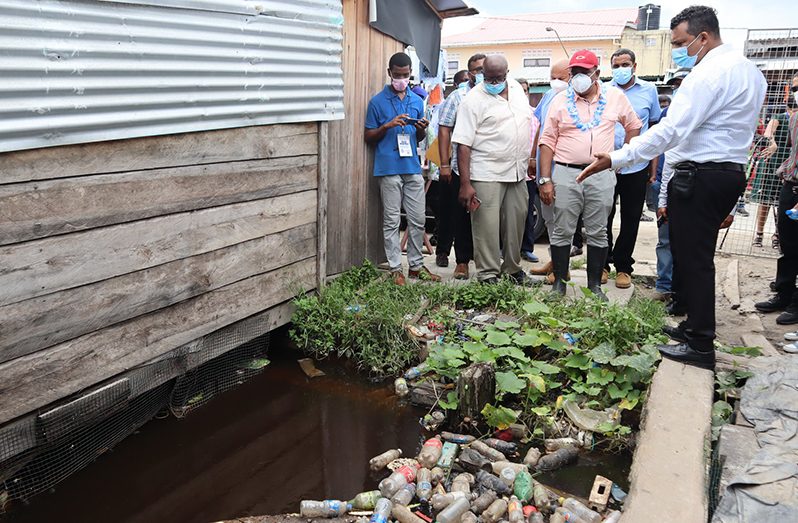–Minister Mustapha links it to recent flooding
AGRICULTURE Minister Zulfikar Mustapha and the National Drainage and Irrigation Authority (NDIA) are calling on citizens to desist from dumping their household garbage and other unwanted items in canals and drains.
They have emphasised that the indiscriminate garbage disposal is a continuous challenge that obstructs drainage works, damages pumps and contributes to severe flooding in many areas.
Christine Douglas, the NDIA’s Monitoring and Evaluation Officer in a Ministry of Agriculture report has explained that the country’s drainage and irrigation system is interlinked, and despite popular belief, if one is to dump their garbage in a drain or trench, it does not simply float away.
“One of the major challenges the NDIA faces in executing its mandate is the accumulation of garbage in our waterways. The D&I system is interlinked, so one place that garbage is dumped eventually [stays] in the entire systems,” Douglas said.
She added: “Residents out there tend to think that should they dump the garbage in the middle of the channel, it will eventually flow out, and goes out to the sluice and all is well with the world.” She explained that although pumps at pump stations are equipped with trash racks, debris can still pass through, causing blockages and damages to the mechanical devices.
“Millions of dollars are spent to actually repair these pump stations; one little wood or one little cloth or whatever debris that are in the channels,” Douglas said.
Meanwhile, NDIA ranger, Romel Dhalgetti explained that residents should be considerate of the contractors and workers who have to manually remove waste materials from the pumps, channels and sluices. “Most of the time, we would get a lot of complains from the contractor. The contractor would say they’re not going into the drain, because it would be real filthy sometimes.” He added that they would often come across “very dirty stuff”, and for the sake of their health and personal reasons, many contractors refuse to do the work.
“When it is time to go and do the manual work inside the drains, they complain because some people don’t want to touch dead animals, bloody pads and those kind of stuff,” Dhalgetti said.
He noted that contractors often find dead animals, furniture, plastic bottles and other household garbage.
Because of this recurring problem, the NDIA has had to expend millions of dollars to clean and oversee the rehabilitation of several pumps and drains across the country.
Minister Mustapha also pleaded with residents to desist from dumping their waste in the country’s waterways.
“We want to ask residents to desist from dumping garbage in the drains and in alleyways. It is hampering our drainage systems, and as a result of that, it is causing severe flooding around the regions,” he said. He added that citizens should be more cognisant of the damage and effects they can cause when they do not dispose of their waste the correct way, especially during the current rainy season. “We are in the rainy period, and we have seen a number of areas that were under water; not only in Region Four, but we had to visit Regions Two, Three, Five, Region Six and parts of Region Ten,” he said. Minister Mustapha noted that the recent flooding in Charity, in Region Two, was a prime example of what can happen when residents dump their garbage in the drains and canals.




.png)









